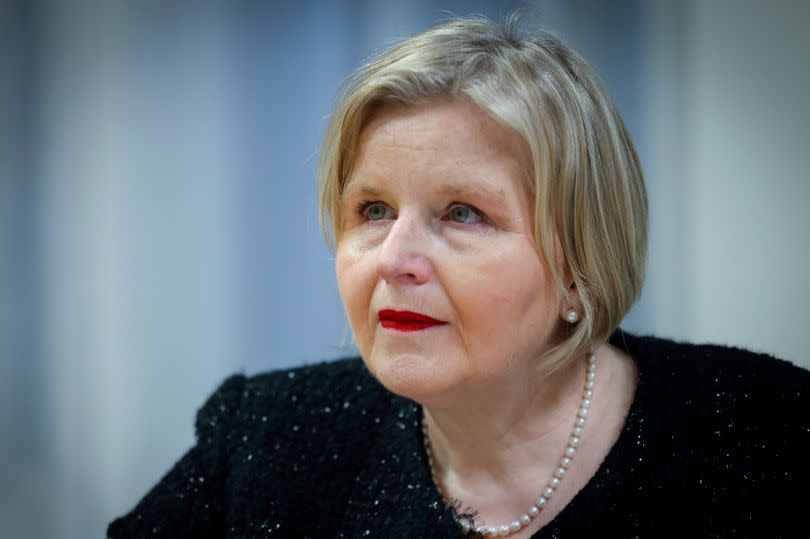Concerns over hospital care of pregnant Nottingham women, review chair says

A review into maternity failings at Nottingham hospitals has been expanded after reports concerning the care of women during their pregnancy were received, its chair said. More than 1,900 families are part of an ongoing independent review into hundreds of baby deaths and injuries at Nottingham University Hospitals (NUH) - the biggest in NHS history.
A separate criminal investigation into the trust, which runs the Queen's Medical Centre and City Hospital, was announced by Nottinghamshire Police in September. Providing an update on the review on Tuesday, May 21, senior midwife Donna Ockenden said she was keen to speak to families about a "range of antenatal experiences" after women raised issues with their care.
Antenatal care involves the care that mothers and babies receive throughout pregnancy, including ultrasound scanning, blood tests, and diagnoses. "They can come forward to us and tell us anything they want to about antenatal care," said Ms Ockenden.
Families wishing to contact the independent review can do so by emailing nottsreview@donnaockenden.com or by filling out an online form here
"Families have come forward and talked about a range of antenatal experiences, some families have reported good care, others have raised some concerns with the review team. So we've decided that now is the right time to ask women across Nottinghamshire to please talk to us about how they found their care during pregnancy.
"At the heart of it is trying to understand is there a bigger problem or not." Ms Ockenden said there were 1,904 active families in the review, which is open to taking new cases until three months prior to its expected completion date in September 2025.
This includes cases of stillbirths, neonatal deaths, baby injuries and maternal deaths and injuries since 2012. She said the antenatal cases, of which there are 23 so far, will form a separate arm of the review.
Ms Ockenden, who launched the inquiry in September 2022, said many of the women she had spoken to so far were suffering from long-term psychological issues. "I always knew this would be a very large-scale review, sadly my prediction was correct," she said.

"I'm in touch with families pretty much seven days a week and it's very hard to hear what has happened to families through them receiving maternity care and treatment. The message that I hear very clearly is that when there is a tragedy and there is avoidable harm, the consequences stay with a family forever. The after-effects stay with the woman, her partner and children for a very long time."
Anthony May, chief executive at NUH, said: “Donna and her team are encouraging more women and families to tell them about the antenatal care they have received at our hospitals. This is an important aspect of our maternity services and I support Donna’s desire to hear from women and families who have experience of these services.
“I am grateful for Donna’s engagement with us as we learn and improve. The regular feedback we receive from Donna is invaluable. In that vein, a greater understanding of antenatal experiences will help us continue on our improvement journey.”
Those wishing to share their experiences with antenatal care with Ms Ockenden are asked to email antenatalexperiences@donnaockenden.com

 Yahoo News
Yahoo News 
